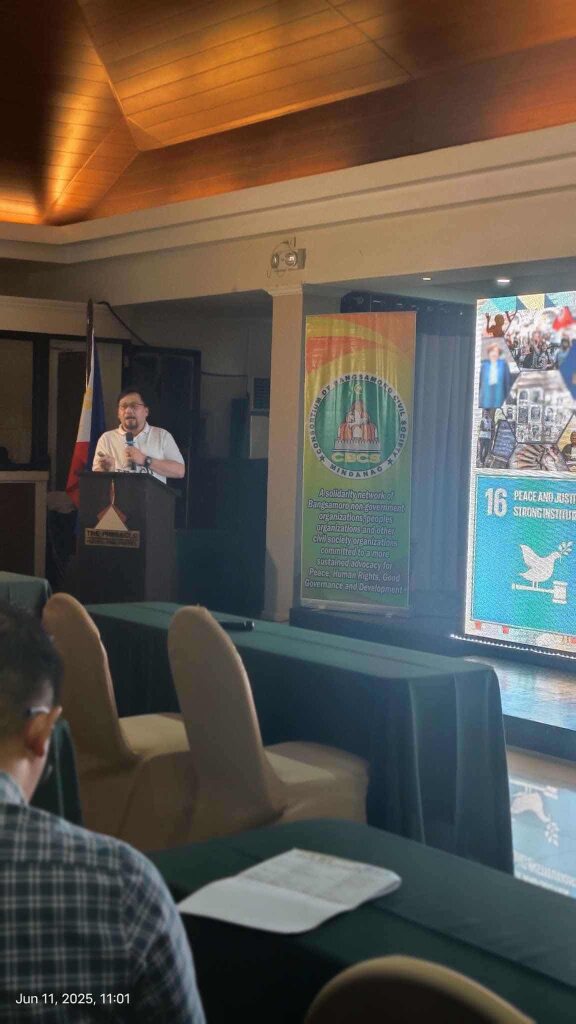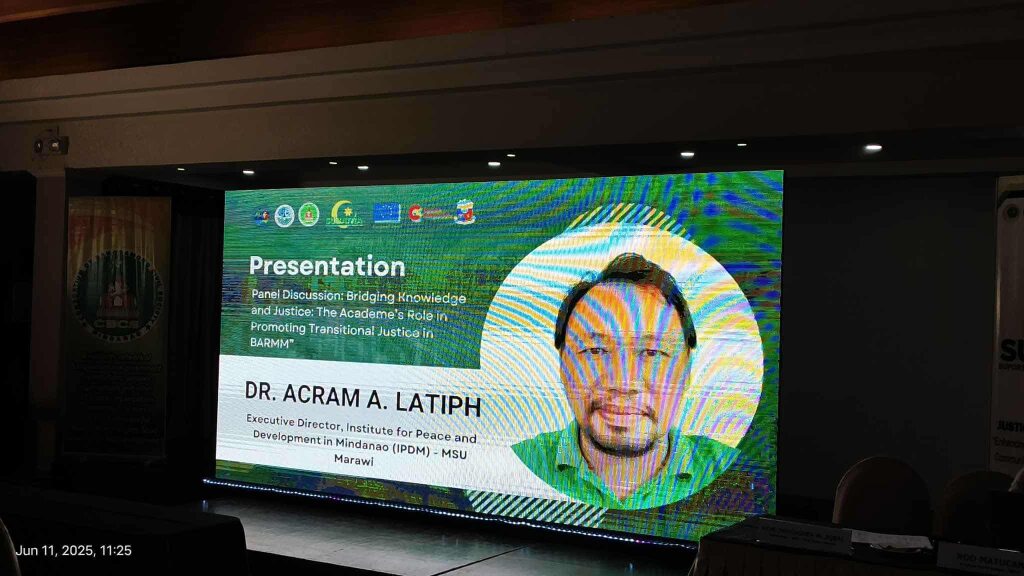Dr. Aliah Pacalna Cali-Pascan, JD, Sh.C
We’re proud to share that our very own Executive Director, Dr. Acram Latiph, was a distinguished panel discussant at the recent Transitional Justice and Reconciliation (TJR) Conference held in Davao City.
Dr. Latiph delivered an insightful discussion on a crucial topic: “Bridging Knowledge and Justice: The Academe’s Role in Promoting Transitional Justice in BARMM.” His expertise shed light on how academic institutions can be vital partners in advancing transitional justice efforts and fostering lasting peace in the Bangsamoro Autonomous Region in Muslim Mindanao.
The conference served as an important platform for dialogue and collaboration on this critical issue. We at IPDM are committed to contributing to the ongoing pursuit of justice, healing, and reconciliation in the BARMM.
#IPDM#TransitionalJustice#BARMM#TJRConference#Davao#AcademeForPeace#JusticeAndReconciliation



